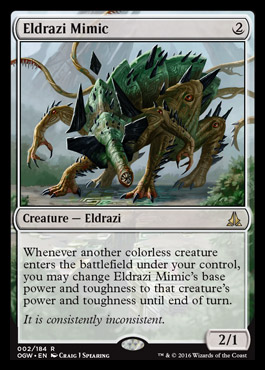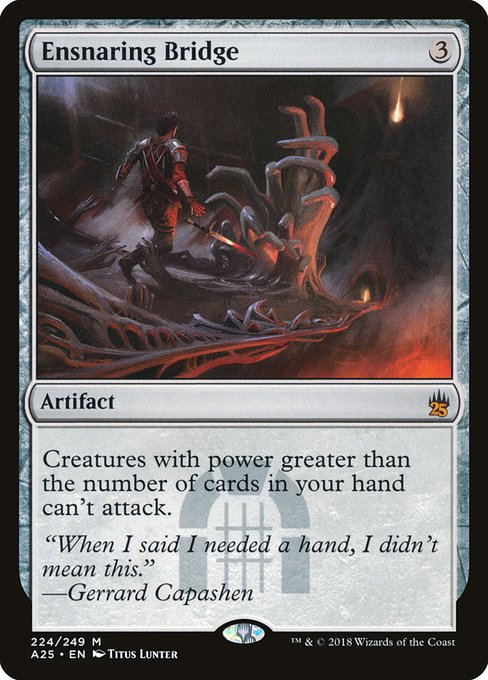Are you a Quiet Speculation member?
If not, now is a perfect time to join up! Our powerful tools, breaking-news analysis, and exclusive Discord channel will make sure you stay up to date and ahead of the curve.
For those who haven't seen it yet I decided to play a pretty sweet brew at SCG Louisville, aka the Eldrazi Open.
Abzan Company
The deck tech can be found here.
The deck had been testing extremely well, so why is it that I finished with a 6-3 record and failed to make day two? I fell into the trap that is to try and beat the best deck in the room with a deck that is gunning for it. Most of my playtesting had been against the Eldrazi decks, and I failed to test against much else. I mean, everyone would be playing Eldrazi right? Wrong. Even if modern is getting less diverse due to the Eldrazi decks, Modern is still a format where you will face a ton of variety. It was due to not being prepared against the other decks in Modern that I failed to day two.
How/what can I learn from this experience? This is the question that I have been asking myself since I have been back home. Here are the things that I can take away from this weekend. "What" I can learn is that no matter how good you think your deck is against the expected best deck, you must make sure that you deck is still just a good deck abstractly. While I think the Abzan Company deck is still good, I don't think it is good enough versus the field the way that I built it. "How" I can learn from this is just remembering the feeling I had after day 1. I had such high hopes for this Open. I had tested and came up with a great list. I was prepared to take on the Eldrazi head on, but they were nowhere to be found. Instead, I faced decks I was less prepared for and took one too many loses. I found myself on the outside looking in. With so much time put in, it was a terrible feeling to not even be playing on day two.
These types of feelings can either bring you down and leave you wanting to quit, or they can drive you and force you to work harder to not let this happen again. For me, I'm using it as a driving force to become a better player. I take this lesson to each testing session, FNM, Open, GP, etc and I will not fall into the same trap. I will still test sweet brews because I love making them, but I will make sure that I test vs enough of the field and for long enough to get a realistic view on how good the deck is.
Okay enough with what I learned. Lets put these lessons to work! With all this information that I have now I have a pretty good idea of what I would play if I were to battle in GP Detroit. I would either play UW Eldrazi or Affinity. As I'm not a huge fan of UW Eldrazi, and I am a huge fan of Affinity, I would most likely be playing Affinity. Here is the list I am currently starting with.
Affinity
Savvy readers will notice that this deck is very close to the one that Austin Holcomb won the SCG Open with. I feel like you are breaking a lot of the Affinity "rules" with this deck, but I think it is fine given how the meta game is in Modern right now. The biggest thing is that I don't like having this many removal spells in my Affinity decks, but I feel like that you need to have one in your opener or very early in the game to beat the Eldrazi decks. The inclusion of sideboard Ensnaring Bridge is also quite odd. This card isn't really breaking the rules of Affinity, but it isn't a card you usually see in Affinity boards, or in sideboards of decks that usually win by attacking with creatures. The great thing about most of your creatures is that they are all pretty small before getting pumped by things like Cranial Plating, Arcbound Ravager, or Signal Pest.
While Austin had some amazing insight on so many levels of this Affinity list, I believe that there can still be improvement. I have changed one Galvanic Blast to a Dismember so that I have three ways to kill a Reality Smasher. This is important, as it is the only creature that you can't chump block. Next, I changed the Goblin Mountaineer to a Leechridden Swamp. With the sideboard plan of attaching the Cranial Plating at instant speed, it is important that we have access to two black mana. I also have moved the Etched Champions to the board. In a format filled with colorless creatures, Etched Champion just isn't the champion it once was. The sideboard changes are just a few things that I personally like. I don't like Whipflare as much now that we have Ghirapur Aether Grid. I do like Thoughtseize, but wanted room for Stubborn Denial. With so much Eldrazi in the format, I wanted a third really powerful hate card for them as well, so I added the third Ensnaring Bridge. The third Bridge could be a Aerie Worshippers so you don't get blown out by Hurkyl's Recall, though tacking a white mana onto the spells cost is a downside that is likely to matter.
So there you have it. While the tournament wasn't the best, I have learned something new. You hope to be winning while learning these lessons, but you can't win them all. Once again thanks for reading!
Follow me on twitter @conanhawk






Great read. I agree with most of the changes I am testing as of this week its a little more on the faster side as well
I’ve been testing a similar Abzan Combo deck too, but our lists are a bit different. The main card that I don’t play is Blood Artist. I don’t think that creature is necessary for the deck to function. It is sweet when it works, but most of the time it doesn’t do much. I’m surprised you’re giving up on this deck without tweaking it more. The deck is good and well positioned. I think it could do quite well in Detroit with the right adjustments.
Why would you play Blood Artist over Zulaport Cutthroat?